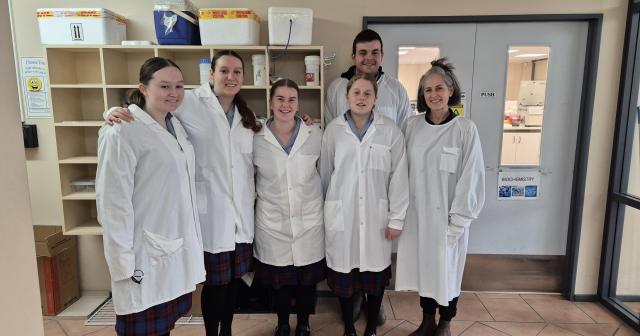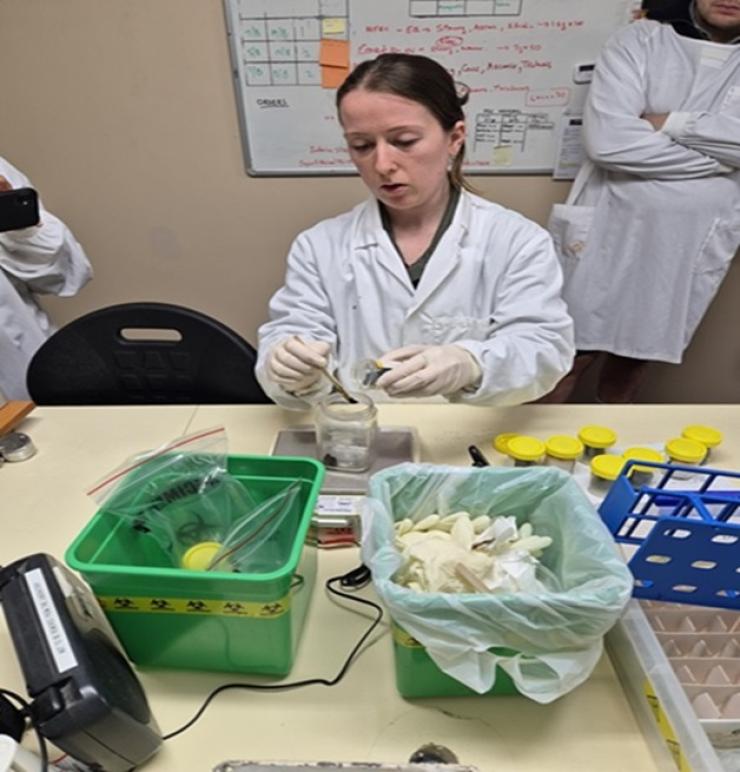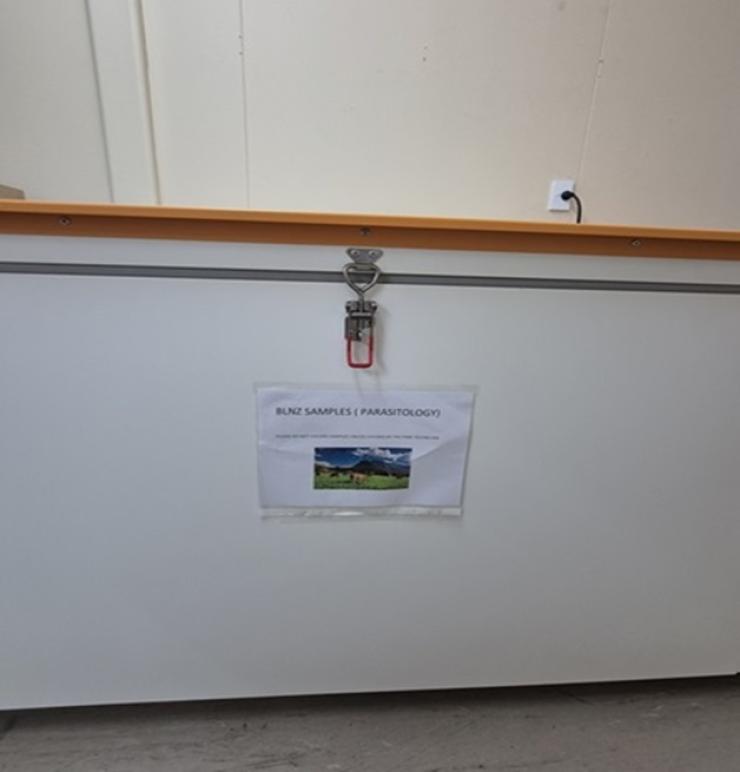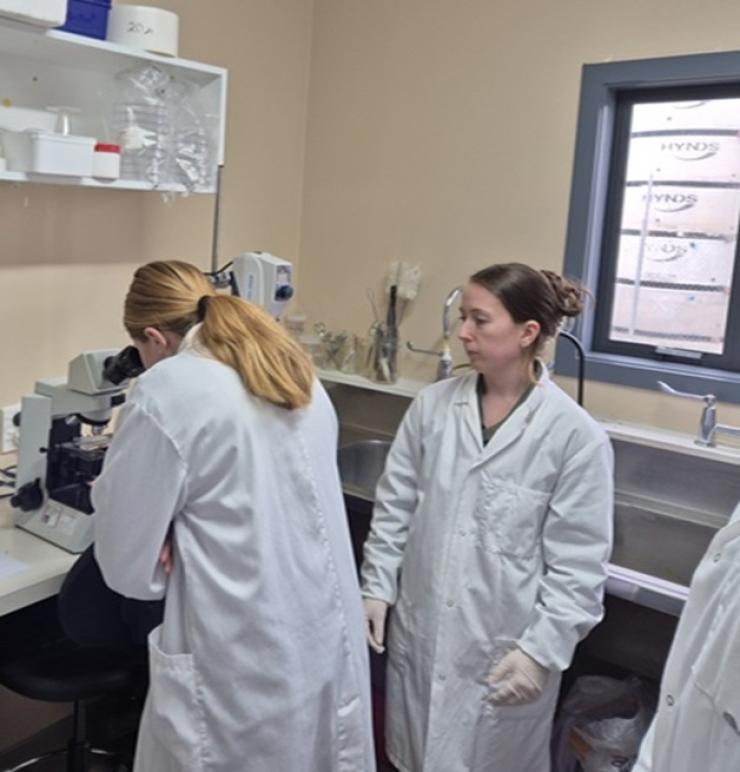Feilding High School students who collected samples for last year's B+LNZ Sheep Poo study visited Awanui Veterinary laboratory to learn how their efforts contribute to spore counting and provide key insights for tackling FE through the Eliminating Facial Eczema Impacts programme.

During their visit, the students observed the faecal FE spore counting process firsthand, gaining a deeper understanding of how the samples they collected play a vital role in efforts to one day eliminate the impacts of FE. This experience was more than just an educational opportunity; it was a chance for them to see how their contributions could have a real impact on the agricultural industry.
At Awanui Veterinary, the team guided the students through the testing process and explained the significance of their involvement. B+LNZ Principal Scientist Dr Cara Brosnahan shared the results from their school farm's previous poo collection and compared them with data from other farms across the country.
“It’s great to see young people taking an active interest in the health and wellbeing of our livestock. By being involved in projects like this, they are not only learning but also contributing to solutions that will benefit the entire sector,” Brosnahan said.
The day was packed with valuable learning experiences. The students left with new knowledge and practical tips to share with their peers, and the hands-on exposure also solidified career aspirations for two of them—one aiming to become a livestock vet and the other interested in applying industry knowledge to a career in rural banking.
B+LNZ recognises the importance of giving students like this these opportunities to see how their work makes a difference, B+LNZ is also committed to attracting new people to the sector.
“Engaging students in our research projects not only enhances their learning but also ensures that they understand the critical challenges facing the industry. It’s these future professionals who will continue the work we’re doing today,” Brosnahan added.
Facial eczema remains a significant concern for New Zealand farmers, with an estimated annual cost of around $332 million across the sheep, beef, dairy and deer sectors. The Sheep Poo Epidemiological Study, a key part of the Eliminating Facial Eczema Programme, aims to better understand FE’s prevalence and risk factors by involving farmers across 16 regions. The data collected will be instrumental in developing future management tools and solutions.
B+LNZ is calling on more farmers to participate in the next phase of the sheep poo study. With 200 farmers already involved, the goal is to reach 350. Participating farmers will receive regular spore count results, access to a spore detection map, and the opportunity to contribute to groundbreaking research that could change the future of FE management.
Farmers interested in joining the study can register their interest here.
The EFEI programme, announced in March by Agriculture Minister Todd McLay, is jointly funded by B+LNZ, the Government through the Ministry for Primary Industries Sustainable Food and Fibre Futures fund and the primary sector.


